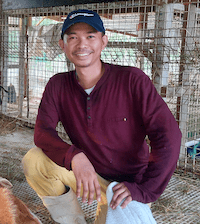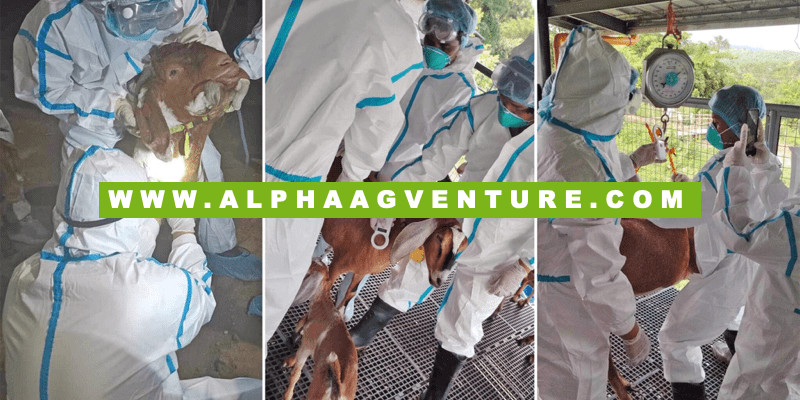The Philippines has decided to prohibit the importation of live goats from the United States following the discovery that several imported goats from America tested positive for Q fever, which can be transmitted to humans.
In Memorandum Order No. 26, issued on June 20, Agriculture Secretary Francisco Tiu Laurel Jr. implemented this ban on live goats from the US. He indicated that the recent shipment of goats from the US, tested on June 19, was found to be positive for Coxiella burnetii, the bacterium responsible for Q fever.
The Department of Agriculture-Bureau of Animal Industry (DA-BAI) reported that out of 94 goats that arrived, 19 tested positive for the disease. The infected animals were subsequently culled to prevent further spread.
Tiu Laurel explained that there is no effective treatment or vaccination available for animals in the country, necessitating radical measures to protect the local ruminant industry and public health. He also ordered the immediate suspension of processing, evaluation, and issuance of sanitary and phytosanitary import clearance (SPSIC) for US-origin goats.
Additionally, he stated that all previously approved but unused SPSIC for these goats were canceled with the issuance of the memorandum. Shipments already in transit before the order was issued will be allowed, subject to quarantine and testing requirements.
The order took effect immediately and will remain until officially revoked. The Department of Health noted that Q fever can be transmitted to humans, particularly affecting farmers and animal handlers in close contact with infected animals, though human-to-human transmission is rare.
Symptoms in humans typically appear two to three weeks post-exposure and are usually mild, including fever, fatigue, headache, cough, nausea, and vomiting. Q fever in humans can be treated with antibiotics, according to the Health Department. To prevent infection, the DOH recommended avoiding contact with animals suspected to have Q fever.
Biosecurity Measures to Prevent Q Fever on Farms
- Quarantine New Animals: Isolate new livestock for at least 30 days and test for Q fever before integrating them into the existing herd.
- Regular Health Screening: Conduct regular health checks and Q fever testing on all livestock, especially those with a history of exposure.
- Proper Waste Management: Dispose of animal waste, bedding, and birthing materials promptly and safely, using incineration or deep burial to prevent contamination.
- Control Rodents and Wildlife: Implement measures to prevent rodents and wildlife, which can carry Q fever, from entering farm facilities.
- Clean and Disinfect: Regularly clean and disinfect animal housing, equipment, and vehicles used for transporting animals to reduce the risk of bacteria spread.
- Protective Clothing and Gear: Ensure all farm workers wear protective clothing, masks, and gloves when handling animals or cleaning areas where animals are kept.
- Restricted Access: Limit access to livestock areas for non-essential personnel and visitors to minimize potential exposure to the bacterium.
- Educate Farm Personnel: Train farm workers on recognizing symptoms of Q fever in animals and humans, and on proper hygiene practices to prevent infection.
- Ventilation Systems: Maintain adequate ventilation in animal housing to reduce airborne spread of Q fever bacteria.
- Report and Cull Infected Animals: Report any cases of Q fever to authorities and humanely cull infected animals to prevent further transmission.
Preventing Q Fever in Goats: Essential Nutritional Support

Mr. Jaycee de Guzman is a self-taught agriculturist and the founder and patriarch of Alpha Agventure Farms, recognized as the leading backyard farm in the Philippines. With a rich background in livestock farming dating back to the early 1990s, Mr. de Guzman combines his expertise in agriculture with over 20 years of experience in computer science, digital marketing, and finance. His diverse skill set and leadership have been instrumental in the success of Alpha Agventure Farms.


